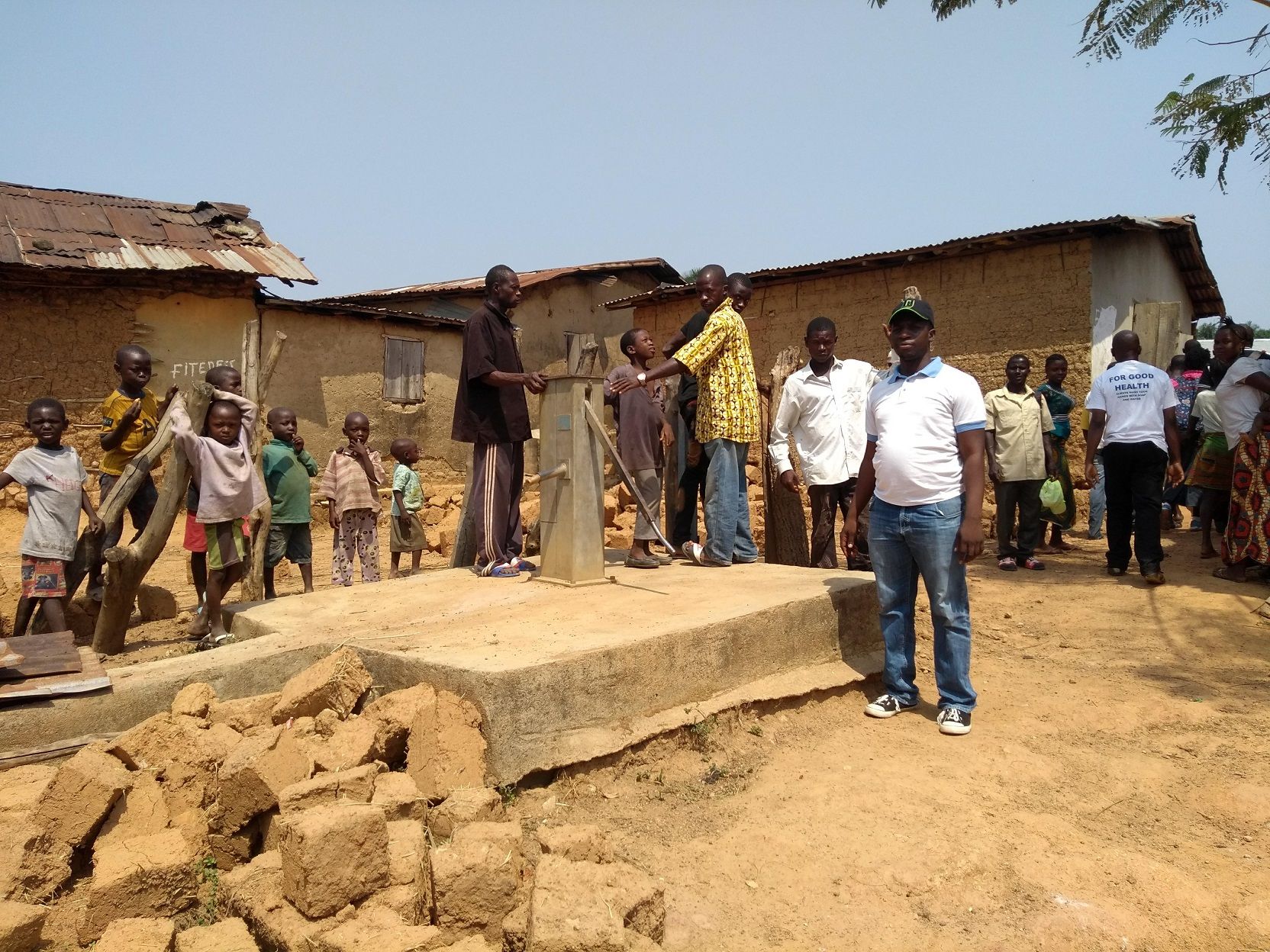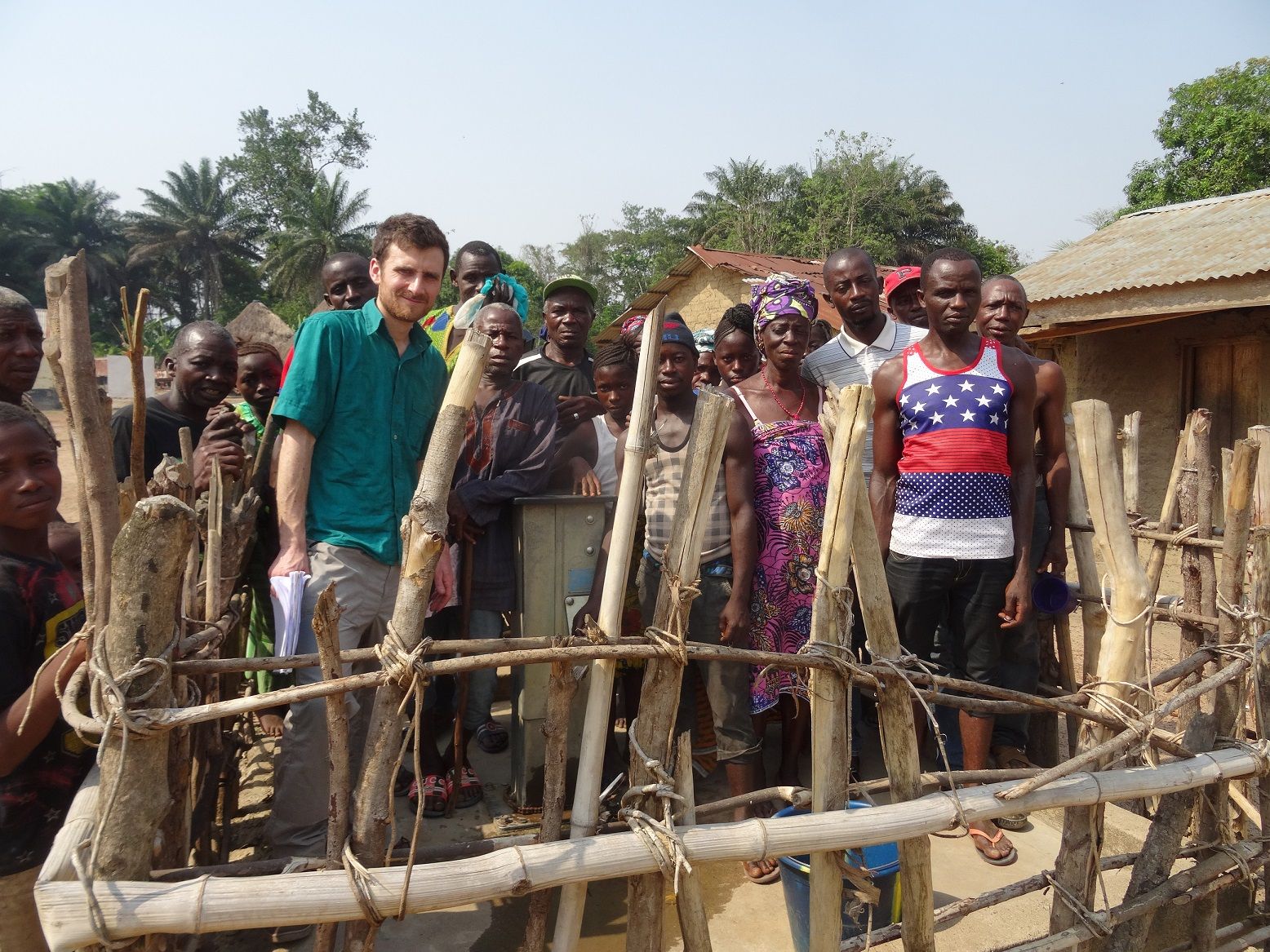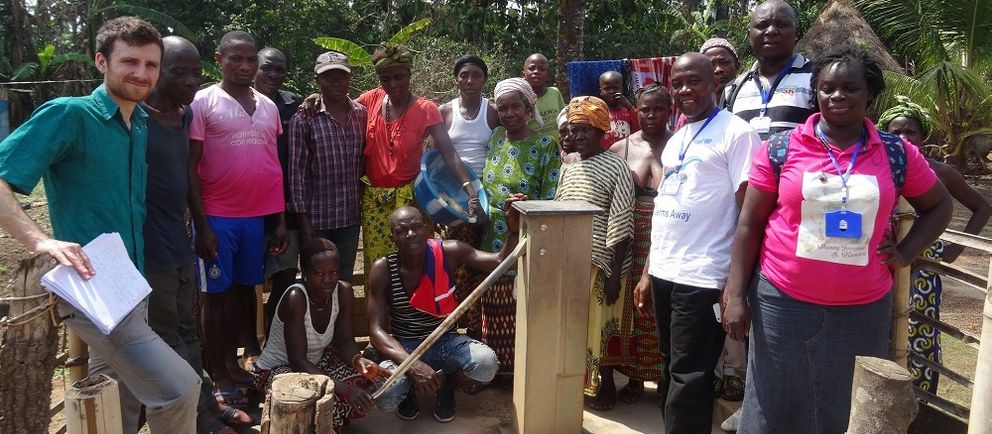- Wells in Sierra Leone are restored and constructed.
- WASH training prevents contamination of wells through lack of knowledge.
- Purification of water by boiling on an open fire becomes unnecessary.
- Decreased demand in firewood, fewer emissions from burning.
Training, rehabilitation & maintenance of boreholes.
Water is a precious good. Which is why we’re beyond excited to present you with our newest addition in the water project family. Our project in Sierra Leone enables the rehabilitation and construction of boreholes. The trees that would be needed as firewood to purify water by boiling it, can continue to grow. The CO2 produced by making fire is avoided. Without the wells, the disinfection of water by boiling would be a necessity.
Through your regular support, it is made possible to create this impact together. Locals receive training on how to maintain the pumps and how to implement good hygiene practices with WASH (Water, Sanitation & Hygiene). So far six boreholes were rehabilitated and are ready for use. By 2030 this project will have prevented 10.000 tons of CO2 from being produced.

Why Sierra Leone?
50% of the population lacks access to an improved water source. Thanks to your support, women and children in particular are benefiting from this project’s effective improvements. Many of the wells built in the past have fallen into disrepair, as maintenance is costly and requires expertise.
As a result, women spend a particularly large amount of time boiling contaminated water for a variety of uses. Because the wells make clean water accessible, children are less likely to become sick and miss less days of school. Because women no longer have to spend time boiling water, they have more time to do other things. The project is certified by GoldStandard, one of the highest standards for climate and development activities. That way we can ensure maximum impact.
Less diseases & more independence.
Village Pump Minders receive extensive training on maintaining the pumps. As a result, they gain independence. Monitorers join forces with the government to identify and restore more broken down boreholes.
Annual WASH-Trainings provide impactful knowledge to communities on how to prevent the boreholes from getting contaminated. Waterborne diseases become scarce and the boreholes can be used longer without risk. Time spent collecting firewood to boil and sanitize water can be used otherwise. This work is often the responsibility of women, who now have more free time.

No need for fire or electricity = less CO2
The boreholes reach a maximum depth of 100 meters. Therefore they can be accessed by hand pumps and don’t need electricity to function. This technique allows them to be used free from emissions. Due to the water being safe for consumption, there is no need for burning firewood to sanitize the water. Trees can keep growing and continue to absorb CO2from the atmosphere.
Next up… New project in forest conservation. Get to know Nii Kaniti.
Fotocredit: co2balance





